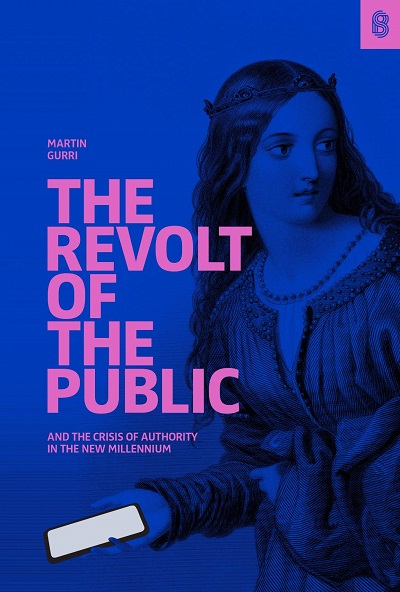World War Two
Published 17 Sep 2021Ever wonder what would have happened if Japan just never attacked Pearl Harbor but invaded the Indies anyway? Or how the people of Cyprus are faring in the war? Or if the Chinese armies had any specialized combat forces? Find out in this Out of the Foxholes!
(more…)
September 18, 2021
What if Pearl Harbor Never Happened, Life in Cyprus, and Peasant Armies of China – WW2 – OOTF 024
Paris Fights Back – The French Battle Against German Encirclement I Franco-Prussian War 1870
Real Time History
Published 16 Sep 2021Support Glory & Defeat: https://realtimehistory.net/gloryandd…
The German armies are on their way to encircle the French capital Paris after their victory at Sedan. The new French government is raising new troops all across the country and in Paris itself to stem the tide. Poorly equipped and poorly trained troops fight the Germans at Sceaux/Chatillon. Meanwhile, the German states start their negotiations for German unification.
» THANK YOU TO OUR CO-PRODUCERS
John Ozment
James Darcangelo
Jacob Carter Landt
Thomas Brendan» OUR PODCAST
https://realtimehistory.net/podcast – interviews with historians and background info for the show.» LITERATURE
Arand, Tobias: 1870/71. Die Geschichte des Deutsch-Französischen Krieges erzählt in Einzelschicksalen. Hamburg 2018Bourguinat, Nicolas/Vogt, Gilles: La guerre franco-allemande de 1870. Une histoire globale. Paris 2020
Gouttman, Alain. La grande défaite de 1870-1871. Paris 2015
Haselhorst, Olaf: Operationen der deutschen Heere im Krieg gegen Frankreich 1870/71, in: Der Deutsch-Französische Krieg 1870/71.
Vorgeschichte, Verlauf, Folgen, hrsg. v. J. Ganschow unter anderem Graz 2009, S. 83–120
Milza, Pierre: L’année terrible. Paris 2009
» SOURCES
Chuquet, Arthur: La Guerre 1870-71. Paris 1895Busch, Moritz: Bismarck und seine Leute während des Kriegs mit Frankreich Band. 1. Leipzig 1878.
Goncourt, Edmonde de: Memoires de la vie Litteraire. Paris 1890
Kriegsgeschichtliche Abtheilung des Großen Generalstabes (Hrsg.): Der deutsch-französische Krieg 1870-71. II.1 Berlin. 1878
Russell, William Howard: My diary during the last great war. London and New York, 1874
Sternegg, Generalmajor von: Schlachten-Atlas des 19. Jahrhunderts. Band 10. Deutsch-Französischer Krieg1870/71. Leipzig u.a. o.J. [1885]
» OUR STORE
Website: https://realtimehistory.net»CREDITS
Presented by: Jesse Alexander
Written by: Cathérine Pfauth, Prof. Dr. Tobias Arand, Jesse Alexander
Director: Toni Steller & Florian Wittig
Director of Photography: Toni Steller
Sound: Above Zero
Editing: Toni Steller
Motion Design: Philipp Appelt
Mixing, Mastering & Sound Design: http://above-zero.com
Maps: Battlefield Design
Research by: Cathérine Pfauth, Prof. Dr. Tobias Arand
Fact checking: Cathérine Pfauth, Prof. Dr. Tobias ArandChannel Design: Battlefield Design
Contains licensed material by getty images
All rights reserved – Real Time History GmbH 2021
Early American Ammunition
Townsends
Published 2 Jun 2021Visit Our Website! ➧ http://www.townsends.us/ ➧➧
Help support the channel with Patreon ➧ https://www.patreon.com/townsend ➧➧
QotD: Material prosperity and happiness
Let me take a moment to agree with all spinmeisters and talking heads, linked in my inbox this morning. Mister Tucker’s monologue on Fox News t’other evening (which I have now “watched” in video and transcript) was a “game-changer”. That is what we (present and former hacks and pandits) call a speech that outclasses the background noise. It makes listeners wonder, however fitfully, whether their sense of current history is right. It “galvanizes” those who, though they agreed with every proposition in advance, ne’er heard them so well expressed. (Gentle reader will find the thing on the Internet soon enough.)
Gallantly, Mister Tucker has articulated the desire of the Right and Left-wavering to raise the tone of American politics to that of Bhutan. His most striking expressions called attention to the fact that material prosperity does not make people happy. Perhaps we should instruct the statisticians to replace their calculations of Gross Domestic Product, with Gross National Happiness, as they now do in Thimphu. The figure would still be meaningless, but might provide some modest, transient uplift.
In my humbly contrary view, material prosperity — i.e. getting filthy rich — does actually make people happy. Those who win the lottery do not cry from despair. But within a few months of scoring, and often within days, they have a new set of personal problems, to pile upon the old ones. Happiness, from material causes, does not last; not even for the poor. It is emotional catharsis. Something makes you happy; and then it fades away.
Only drugs can keep you happy, until you die. But the downside there is that they kill you.
David Warren, “More populist than thou”, Essays in Idleness, 2019-01-04.






